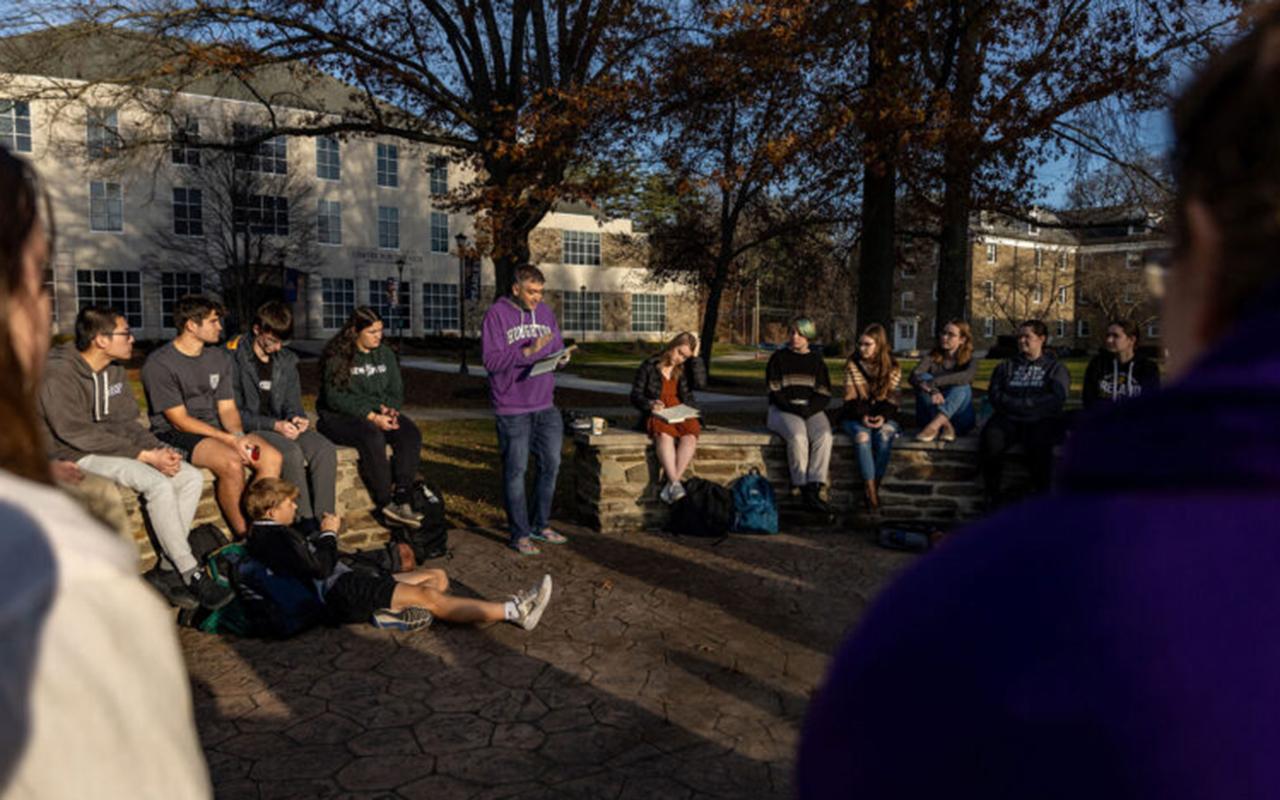The Banner has a subscription to republish articles from Religion News Service. This story by Adelle M. Banks, was published Aug. 28, 2025 on religionnews.com. It has been edited for length and Banner style.
Could slow, quiet reading; artificial intelligence; or short video episodes help young adults engage more with the Bible?
American Bible Society has issued first-time grants to four Christian higher education institutions to encourage innovation in getting young adults more interested in Scripture.
At Los Angeles Pacific University, the recipient of a $15,000 grant, scholars will be researching the effects of a “Bible Engagement Assistant” that builds on “Spark,” an AI course assistant that the online university already uses in its classes. The new technological tool will be used by students in the Bible courses of the university.
“It’s to just increase that frequency interacting with biblical text, prompting them with really good questions to reflect on Scripture and how it influences their life,” said Belén McDaniel, grant manager at the nondenominational university with about 2,800 students.
All four of the winners, chosen from a pool of 16 applicants, are affiliated with the Council for Christian Colleges and Universities, a consortium of evangelical schools.
Three faculty members at MidAmerica Nazarene University in Olathe, Kans., won a $10,000 grant for their proposed TV show, Beyond the Bible.
“Overall readership of the Bible has gone down, but at the same time, knowledge about biblical concepts has actually gone up through shows like ‘The Chosen’,” said Aaron Bohn, a filmmaker and associate professor of digital communication at the Church of the Nazarene-affiliated school with about 1,500 students.
He said the grant covers the first three episodes of the short-form show, which will be available on YouTube. Aiming to be both educational and entertaining, the show will feature students introducing biblical concepts and acting them out in sketches with puppets and other characters.
“I can see how these scripts could easily help this age group, the ‘Movable Middle,’ to kind of contextualize the Bible within their lives,” said Addison Lucchi, a MidAmerica Nazarene English professor. The Movable Middle is a term the Bible society uses to describe those who fit neither their “Scripture engaged” category nor their “Bible disengaged” category.
The Bible society’s State of the Bible USA 2025 report showed that Generation Z ranked lowest among today’s generations in terms of Bible usage. Just 36% of Gen Z adults were Bible users this year, compared with 41% of the total population. But its findings also showed a slight increase in Scripture engagement among this youngest group of adults—from 11% in 2024 to 15% in 2025.
The research, completed in collaboration with the National Opinion Research Center at the University of Chicago, defined Bible users as “individuals who interact with the Bible on their own at least three times a year.” The society considers ‘engagement’ to be “far more robust,” including frequency of reading the Bible as well as other measures of the Bible’s influence on the lives of individuals.
The other two schools that received grants are Dallas Theological Seminary, which plans to study best practices for young adults in different church networks, and Houghton University, which intends to use Lectio Divina, a Scripture-focused prayer practice, to help foster deeper interactions with the Bible.
A team of faculty at Houghton, in western New York, received a grant of $7,335 for their proposal to employ the ancient practice involving reading, meditation, and contemplation of the application of Scripture primarily with volunteers among first-year students taking a required biblical literature course.
Lectio Divina will provide a structured form of scriptural study for students who may have been churchgoers but are unfamiliar with Bible stories and Scripture passages, said Amanda Zambrano, grant writer and director of advancement communications at Houghton, which also includes students of no faith.
“For many of our students, this is going to be their first experience in interacting with Scripture on their own, in their own context,” she said of the school that is affiliated with The Wesleyan Church and has about 900 residential undergraduates.
The Bible society and the grantees hope the grant-funded work will serve as models for other schools and ministries.
“We believe this investment will uncover innovative and replicable ways to connect a generation searching for hope and meaning with the answers waiting for them in the life-changing Word of God,” said Jennifer Holloran, president and CEO of American Bible Society, in a statement.
c. 2025 Religion News Service
About the Author
Religion News Service is an independent, nonprofit and award-winning source of global news on religion, spirituality, culture and ethics.

